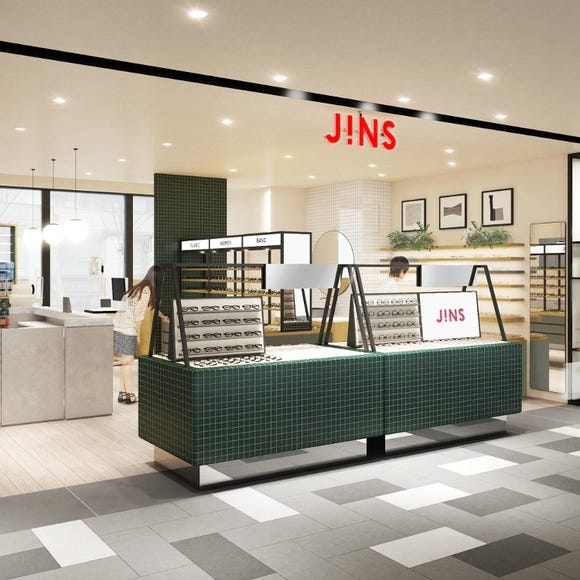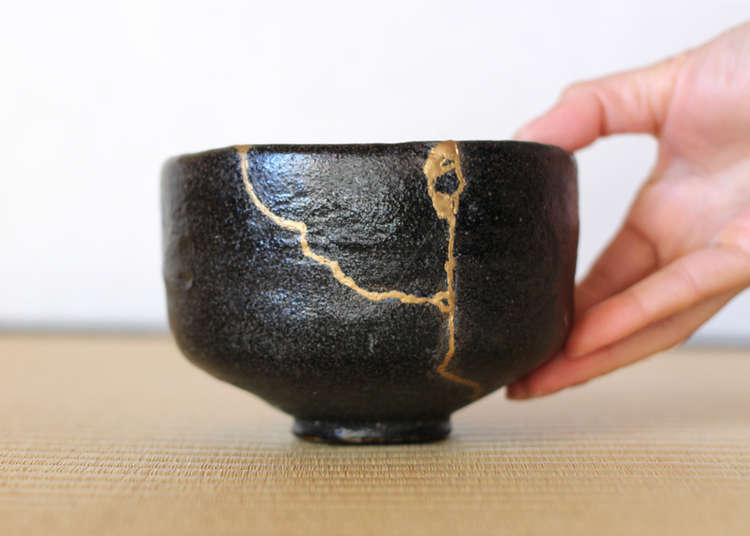
The tradition of gift giving is deeply ingrained in Japanese society, where wrapped presents are not reserved for birthdays and holidays but given after practically every vacation trip, weekend getaway and even day trips.
The term Omiyage means a souvenir you give to someone (rather than keep for yourself) and you are bound to find at least one ‘Omiyage’ store at every train station, airport and probably street corner around Japan selling pre-wrapped local specialties (at times the packing is almost as good as what’s inside!). This means as far as the hunt for a great souvenir goes, you are spoilt for choice in Japan. (Don’t worry - the gift giving aspect of the omiyage expires once you leave the country and you can keep it all for yourself!)
We asked 4 local tour guides for their personal recommendations on unique only-in-Japan souvenirs. Here’s what they shared!
Japanese Food
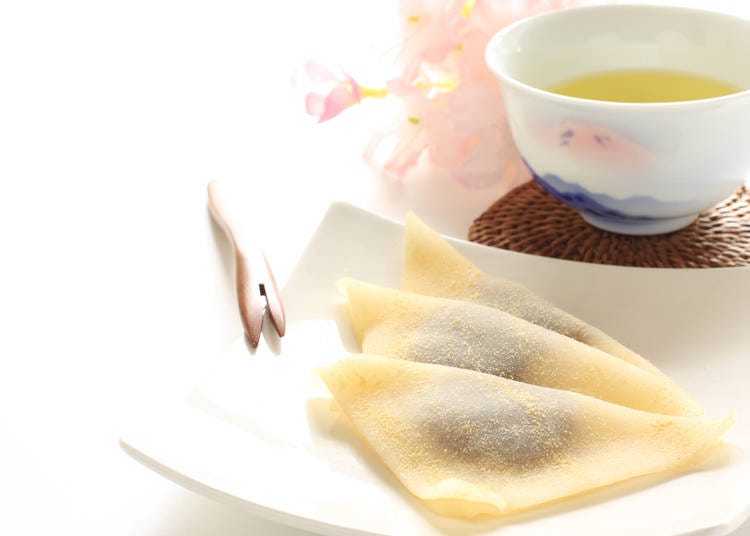
Local treats. Edible souvenirs are one of the most common omiyage given by the Japanese, they usually feature local specialties with seasonal flavors and themes and are almost always available at major train stations of each city. Nama Yatsuhashi is a popular gift from Kyoto- it is sweet bean paste wrapped in dough made from rice flour which has a texture like mochi, pounded sweet rice. These sweets also come in special flavors such as matcha green tea, yuzu and strawberry. Often in autumn when chestnuts come into season, you can find variations of this delicacy with chestnut paste filling. Similarly, each region of Japan has a local treat you can buy to share!
Japanese KitKat flavors. A favorite amongst tourists are the boxes of wacky (and amazing) flavored KitKat. Japan pushes boundaries when it comes to pairing flavors with chocolate - from the tasty and very evidently Japanese Matcha KitKat to the original Strawberry Cheesecake KitKat. Hojicha, Hokkaido Melon, Nihonshu and Wasabi are just a few of the unique and fun flavors you’ll come across in Japan. You can find various flavors of KitKat at airports, convenience stores and even pharmacies.
Rice crackers. Another common snack to take home is ‘senbei’ which are crispy rice crackers usually savory with a thin coating of soy sauce. Popular varieties include sesame, seaweed, pepper and prawn - where you can find in many historical areas such as Asakusa and Kamakura. There are a few sweet variations of the senbei where the crackers are coated in sugar. Head to Ginza, for some custom designed senbei where they use different colored sugar syrups to create artistic, unique and personal treats!
Daifuku mochi (also called Daifuku), a delicious confectionary of palm sized mochi stuffed with a sweet filling such as red bean paste and sometimes with a strawberry inside as well. This little treat is great to bring home to eat alongside some green tea – but be warned it only stays good for 24 hours at room temperate (and 2 weeks in the freezer) so avoid buying it if you have a long flight home.
These of course are the tip of the iceberg when it comes to food based souvenirs and the best thing to do would be to go to any major station find an Omiyage store – sometimes an entire floor can be dedicated to this - and make your rounds tasting and trying all the sweet and salty wonders Japan offers in beautifully wrapped boxes for your to bring home.
Japanese Drinks
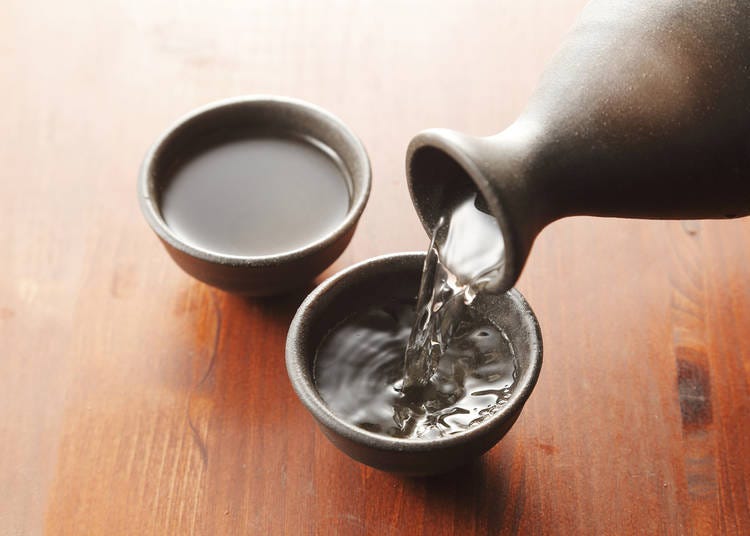
Sake is Japanese rice wine and a great souvenir to bring home. Popular brands are Dassai, Kubota, Denshu and Hakkaisan. If you are considering picking up a bottle for yourself, note that there are many different styles and tastes – it’s definitely worth taking a sip at a sake bar while in town to find out what you like. In general, you’ll see a few numbers on the bottle. One important number is the “sake meter value” or SMV, which indicates to an extent how sweet or dry a sake is. A number of -1.4 to +1.4 is considered relatively neutral. Anything in the negatives will be sweeter; anything in the positives will be on the dry end.
Japanese whiskeys have a strong resemblance to Scotch but are gentler and less peaty. They have received much praise and are globally acclaimed resulting in these whiskeys becoming a popular purchase for many tourists. This popularity was not predicted and currently there is a shortage of premium quality Japanese whiskey to buy. This means that all the brands you are familiar with may come with a bit of a markup. Be sure also to check out some of the more local labels from distilleries like Mars and White Oak Akashi as well.
Umeshu, another traditional alcohol, which can be loosely translated as ‘plum wine’. It is made by combining ume (plum) with sugar or honey and shochu. Sometimes sake is used instead of shochu, but shochu is the more common ingredient. This is a sweet drink and is often used as dessert liquor. Popular brands of umeshu are Toko Ginjo Umeshu, Shiraume no Niwa, Nakata Umeshu Taru, and Hanzo Umeshu.
Japanese Anime and Manga Merch

Japan’s unique amine and manga art forms have spawned a serious fan following all over the world. For those hardcore anime/manga otaku who have grown up watching Pokémon, Dragon Ball Z and Naruto, bringing home themed merchandise is a dream.
Akihabara is the obvious destination for such purchases. Advertised over the internet as the ‘Electric Town’, it holds true to this name. Evenings are the best time to visit with neon lights leading your way. Here you can buy everything from popular anime toys to voice actor products. Many of the items found in Akihabara are exclusively available there.
For those who really know their anime and have a day for deep exploration - Nakano Broadway is where to go. Located in a multistory building, Nakano Broadway has a warehouse feel. Rustic, and without any windows time seems to lose meaning as you make your way through the maze of hallways. The small box-like stores, have everything from figurines to preliminary manga sketches and even a ‘create-your-own doll’ store.
Tokyo Character Street, under the train tracks of Tokyo Station, is the ultimate place to pick up anime-related souvenirs in one quick sweep. Starting with the Pokémon store where you can purchase everything from Pikachu shaped pasta to Pokeball pillows. Other shops on the street included the Hello Kitty store, a Studio Ghibli themed store and the Rilakkuma store.
Japanese Traditional Crafts
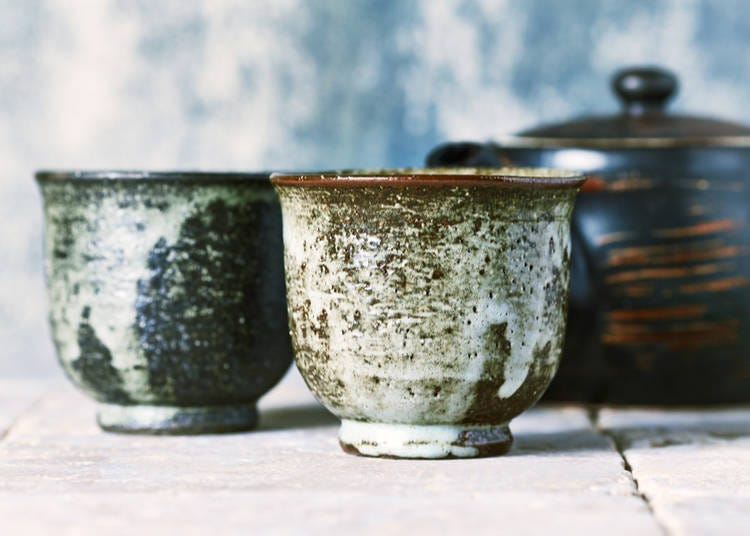
Japan still has a strong artisan culture where the art and technique of craftsmanship is passed down through generations. A stunning ceramic tea set can make for a great authentic souvenir. Here are a few Japanese handmade crafts you should take home with you.
Aizome dyed fabric. Ai (indigo) is a dye that is collected from the leaves of the Japanese indigo plant. Hand dyed, it gives the fabric a rich blue color. The process of hand dyeing using the indigo plant is chemical free and environmentally friendly. A happy bonus is that the dye is also a natural insect repellent! Wanariya, an Aizome store in Asakusa, not only has great products on sale but offers you a chance to try the craft yourself.
Ukiyo-e wood block prints are one of the most common art forms associated with Japan. Artists from the Edo period crated prints of kabuki actors, geisha, sumo wrestlers, samurai as well as pictures of Japanese landscapes. Jimbocho and Kanda, both have galleries with lovely Ukiyo-e prints on sale.
Kintsugi is an art for where broken pottery is repaired by with lacquer and dusted with powdered gold, making gold lines running through your renewed pottery. Kintsugi not only makes a beautiful decoration piece but is also intrinsically representative of Japanese ‘wabi-sabi’ values. It shows how the perfection can be achieved through imperfection and how to embrace one’s flaws.
Japanese fans (Sensu) are great for summers, to frame in your living room or to pair with a kimono. They come in range of prices and designs. These beautifully hand-crafted fans have intricate designs and can sometimes be dusted with gold powder. If you visit Asakusa, the shopping street Nakamise Dori has many stores selling wonderful Japanese fans.
Japanese Stationery
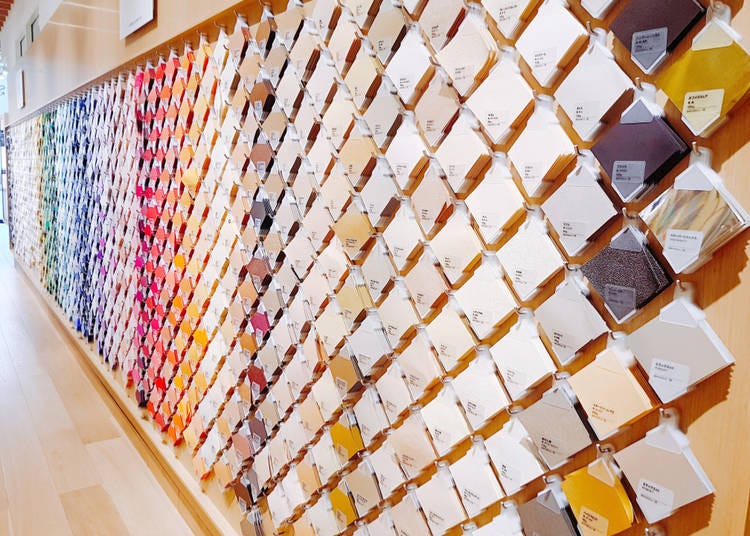
Stationery shopping in Japan can take a whole day and if you are not careful may make your wallet significantly lighter. There are multistory buildings dedicated to stationery, most of which you never knew you needed, a lot of which is actually helpful and some of which is useless but too cute not to buy.
For character or themed stationery, the Disney Store is definitely worth visiting – of course if you have time you can pick up the same merchandise. Here you’ll find some amazing pens, notebooks and sticky notes all Disney themed. The Pokémon store sports a whole collection of Pikachu notebooks, pens and markers. Another favorite, especially with young girls is the Hello Kitty store – completely tinted in pink – the store sells everything from planners to Hello Kitty tape.
Targeting a slightly older market are stores in Ginza, such as Itoya, Loft and Tokyu Hands. Where beautifully leather-bound diaries, planners and notebooks are stocked on the shelves. You can even build your own notebook (an adult version of build-a-bear!) or diary in the ‘Note-Couture section’. There are floors dedicated to paints, pens and even different types of paper. It is an absolute wonderland.
There are some places in Japan that still hand-make the famous Japanese washi paper. Slightly thicker and rougher than regular paper, the parchment comes in various colors and even some with patterns on them. Many of these shops will be found along shopping streets in more traditional neighborhoods, such as Kamakura or Asakusa. Bring them home to practice your newly acquired origami skills or to make a home-made card for someone!
Cute Trinkets and More From 100 Yen Stores
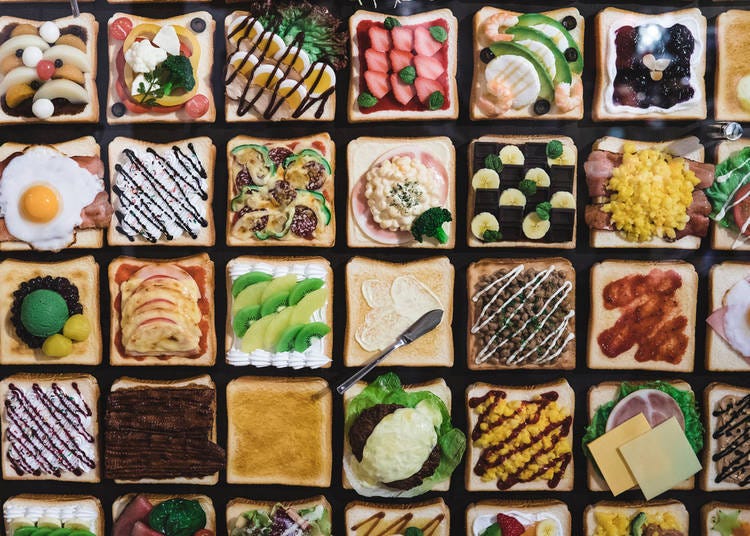
100-yen shops take the concept of the dollar-store to another level with a range of quality products to pick from. They are perfect for stocking up on souvenirs and gifts without breaking the bank. Although they won’t be available in all stores, here are a few great souvenirs you can find for a 100 yen (Harajuku has one of the biggest 100-yen stores in Tokyo and most likely will have most of the items mentioned below).
Cutlery and China. You can pick up a sake set to take home, some chopsticks, Mt. Fuji printed tableware or cute Japanese bento boxes (lunch box).
Fake food. Japan’s hyper-realistic plastic food has become a huge industry. And while these plastic delights framed in glass cabinets outside restaurants make for great pictures, at the 100 yen store you can pick up a little sushi, onigiri or gyoza keychain to take home. For more restaurant quality fake wax food samples make your way to the Kappabashi.
Coin purses. Patterned with traditional prints or made to look like a beautiful orange and red carp fish, you can pick up a cute purse for your coins.
Lucky charms. Maneki-neko are cat figurines where one paw is raised and sometimes even rocks back and forth. These cats are a symbol of good luck in various aspects of your life. A white maneki-neko brings in money, a black one wards off evil spirits and a red cat protects against diseases.
Character products. If you don’t have a lot of time to go to the Disney, Pokemon and Hello Kitty stores you will most likely find some character-themed merchandise in a 100 yen shop.
Browse Around Tokyo's Shopping Streets
When the weather is good, and you want to spend your time exploring the neighborhoods of Tokyo there are a few great areas and streets to keep in mind for some great finds to take home.
Asakusa’s Sensoji Temple is a must-visit spot for any tourist who comes to Japan, and right in front of this stunning red temple is a street called Nakamise Dori which leads up to the main gate and is lined with souvenir stores. From beautifully patterned traditional fans to umbrellas that look like samurai swords when closed, you can find it all at Nakamise Dori.
Koenji is a neighborhood brimming with small stores, cafes and izakayas creating a retro vibe. It was once home to Tokyo’s punk scene, of which remnants remain in the thrift stores scattered about the streets. If you’re in the market for a vintage kimono or yukata, take a train to Koenji!
Shimokitazawa was a former farming village that turned into a dense residential area and now is a thriving art and music community. This hipster neighborhood’s charm comes from its second hand goods – clothes, records, books, cutlery, it’s all here.
A trip to Japan will never end without a few extra pounds added to your suitcase. There is so much to see and even more to buy. It’s inevitable you will end up with a few unnecessary items, but the experience and excitement of finding something you’ve never seen before to take home is just as rewarding as actually using the product yourself. Make sure to keep an eye on your wallet as you shop your way around Tokyo!
Written by: Dhwani Pandya
- Area
- Category
*Prices and options mentioned are subject to change.
*Unless stated otherwise, all prices include tax.
Popular Tours & Activitiess
Recommended places for you
-

Only in Tokyo? A Legendary Manga Artist's New Masterpiece Is Hiding Underground
by: Guest Contributor
-
Ad

Complete Guide to Ueno's National Museum of Nature and Science, the Perfect Place to Visit on Rainy Days or With Children
-

Jujutsu Kaisen Takes Over JR East With a Wrapped Shinkansen This Winter
by: Guest Contributor
-

New in Ginza! Air BicCamera Ginza Opens with a Faster, More Convenient Shopping Experience
by: Guest Contributor
-

These Tokyo Subway Stamps Are Free, Exclusive, and Weirdly Addictive
by: Guest Contributor
-

This Winter, Godzilla Takes Over Haneda Airport
by: Guest Contributor
Inspiration for Accommodations
-

Enjoy Mt. Fuji from the Comfort of Your Room! Recommended Ryokan with Mt. Fuji View
-

Stay Near the Cherry Blossoms! Hotels for Cherry Blossom Viewing in Tokyo
-

Family-Friendly Hotels with Free Shuttle to Disneyland: Convenient Access for a Magical Stay
-

Top Ranked Hakone Hotels with Mt. Fuji View: Enjoy Stunning Scenery from Your Private Space
-

Convenient Tokyo Hotels with Airport Shuttle: Ideal for Families and Heavy Luggage
-

Stunning Tokyo Tower View Hotels: Enjoy Spectacular Scenery from Your Private Space
-

Convenient Asakusa Hotels with Kitchens: Ideal for Extended Family Visits
-

Experience Luxury: Hakone's 10 Best Five-Star Accommodations
-

Enjoy Mt. Fuji Autumn Leaves! Top Hotels Near the Popular Autumn Leaves Corridor
-

Experience Hakone Fall Foliage from Your Room with Stunning Views
-

Healthcare in Japan for Tourists: What to Do When You Get Sick or Injured in Japan
-

Valentine's Day in Japan 2021: Recommended DIY Sweets Kits & Chocolates You Can Order From Home!
by: Fujico
-

Get it at Tokyu Hands! Japan's Top 10 Emergency Goods to Take Home
-

Autumn in Japan 2025: Fall Foliage Forecast & Where to Enjoy the Colorful Leaves (+Tour Info)
-

2025 Tokyo Shinjuku Shopping Map: East Exit, West Exit, South Exit Area Guides & Must-Buy Souvenir Recommendations
by: ShiroKu inc.
-

Easy Day Trip from Tokyo! Ultimate Sightseeing Guide for Hakone & Lake Ashinoko!
- #best ramen tokyo
- #what to buy in ameyoko
- #what to bring to japan
- #new years in tokyo
- #best izakaya shinjuku
- #things to do tokyo
- #japanese nail trends
- #what to do in odaiba
- #onsen tattoo friendly tokyo
- #daiso
- #best sushi ginza
- #japanese convenience store snacks
- #best yakiniku shibuya
- #japanese fashion culture
- #best japanese soft drinks

















